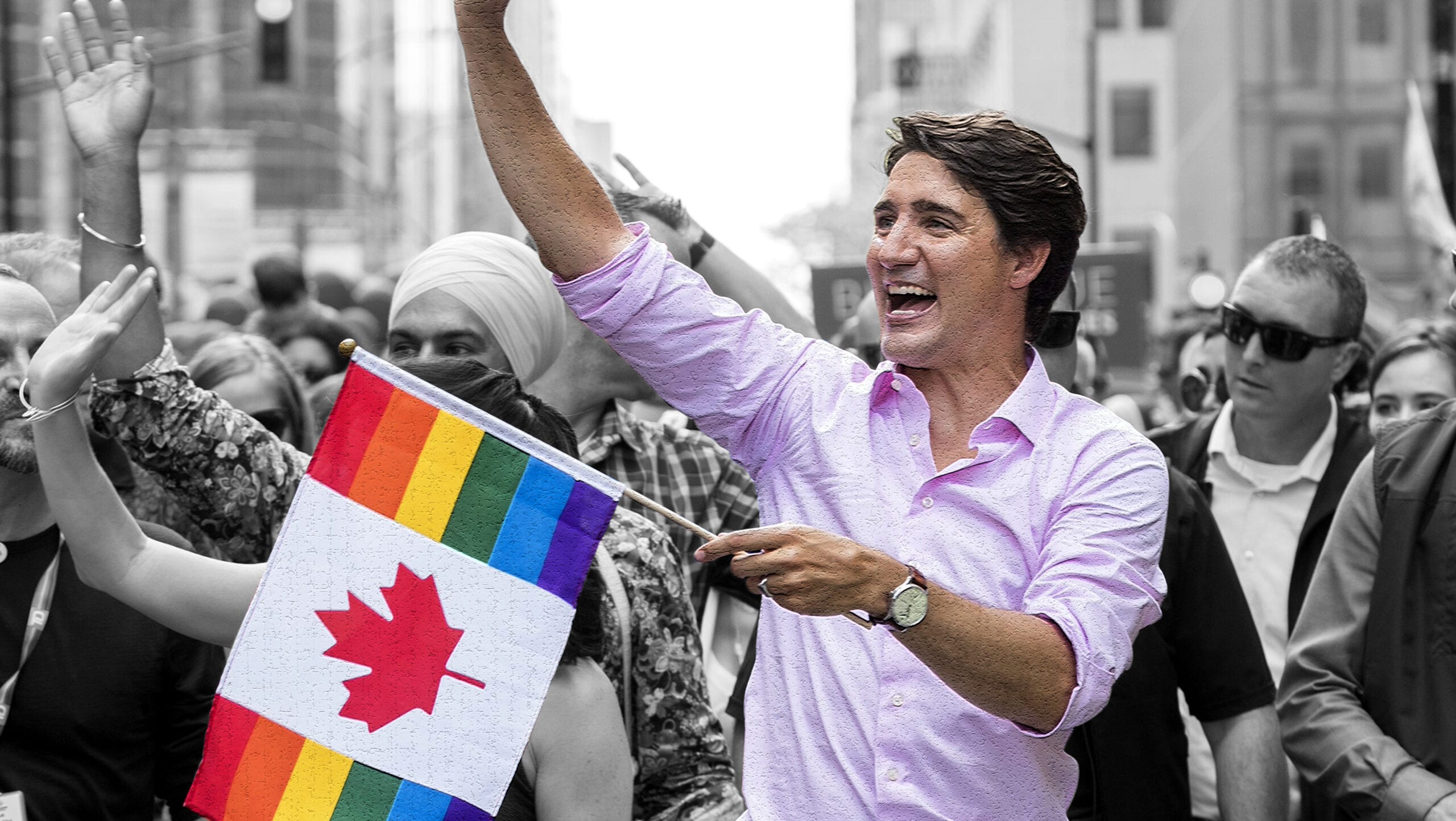In their first four years in power, Justin Trudeau’s Liberals enacted more policies and introduced more funding for LGBTQ2 communities than any previous government in Canadian history. The party oversaw the passage of trans rights legislation through Bill C-16, apologized for the purge of LGBTQ2 public servants up until the 1990s, created the role of LGBTQ2 Secretariat within the Privy Council Office and allocated millions of dollars to queer and trans community organizations and Pride parades.
After a decade under Conservative PM Stephen Harper, who often ignored LGBTQ2 communities, these Liberal commitments appeared massive in 2015—for the first time, sexual and gender minorities were being seen and heard by federal powers. While many of these efforts were a great start, LGBTQ2 people still face daily hardships, stigma and discrimination four years later.
Now in their second term, and on the heels of their new cabinet appointments, the Liberals have to do more to improve the everyday lives of LGBTQ2 Canadians.
Through much of the 2019 federal election campaign, Trudeau positioned the Liberal Party as the progressive alternative to the Conservatives, riding on its four-year, queer-friendly record in office. But all the while anti-LGBTQ2 sentiments have seemingly been on the rise, with far-right and otherwise bigoted protesters showing up at Prides and LGBTQ2 events across Canada. At Hamilton Pride this summer, right-wing, social conservatives and alleged affiliates of the yellow vest movement sparked acts of violence that left numerous LGBTQ2 community members and allies harmed. Anti-LGBTQ2 protesters also showed up to protest a flag raising at the RCMP headquarters in Surrey, B.C., and an anti-LGBTQ2 protester disrupted a drag queen story time event in Bells Corner at the beginning of Ottawa Pride. These are not isolated incidents, but rather part of a worrying trend wherein the few spaces for LGBTQ2 communities are being targeted.
Despite legal rights and some real progress toward inclusion, LGBTQ2 people still face high rates of violence, shame and stigma. Between 20 and 40 percent of homeless young people identify as LGBTQ2. Meanwhile, 36 percent of trans youth report being physically threatened or injured in the past year, and 70 percent have experienced sexual harassment. Bisexual Canadians are nearly nine times more likely to be sexually assaulted, and two-thirds of trans people avoid public spaces due to fear of violence and discrimination.
And when I measure progress by my own experiences and those of my peers in my communities, I see that our lives haven’t tangibly improved. While I laud Trudeau for the changes enacted over the past four years, I still worry about my safety in public as a trans person, and I still experience harassment on an almost daily basis because of my gender identity and expression.
If their 2019 platform is any indication, the Liberals still leave plenty to be desired on LGBTQ2 rights. In their platform, the party committed to banning conversion therapy on a national scale (though they rebuffed that opportunity back in February, when they rejected a private members’ bill tabled by the NDP), increasing their support of LGBTQ2 community organizations by $10 million a year over three years and ending the blood ban. These steps are significant. But a recent report from the House of Commons Committee on the Study of Health demonstrated the breadth and depth of inequalities plaguing LGBTQ2 communities in Canada: Trans Canadians still need better access to gender-affirming surgeries and resources, shelter for LGBTQ2 youth who are homeless is dismal across the country and sexual healthcare for queer and trans folks is in desperate need of updates. Measured against the needs of our communities, the Liberals’ commitments look more like window dressing than the real action we need.
What might real change for LGBTQ2 people actually look like? How could a government truly embrace the LGBTQ2 communities that enrich our country?
To start, the Liberals must consider the issues and needs our communities have voiced—beyond, say, funding for Pride parades. Financially, it includes significant and long-term funding for Canada’s chronically underfunded queer and trans organizations—groups who are on the front lines addressing issues such as LGBTQ2 homelessness, mental health and suicide crises. Legislatively, it requires action: bans on invasive, non-consensual and medically unnecessary surgeries on intersex children and the decriminalization of both HIV (with the understanding that HIV is a public health issue and not a criminal one) and sex work. And perhaps most importantly, it requires awareness—an understanding that our identities are stigmatized, that our country must do better to include and accept our communities.
It’s not an impossible feat. While the Liberals have been reduced to a minority government, they’ll find easy allies in the NDP and the Green Party on LGBTQ2 issues. Both parties included platform commitments on LGBTQ2 rights and issues that were more ambitious than those articulated by the Liberal Party. It could be an opportunity for the new government to demonstrate its commitment to collaboration, to a way forward, through concrete and substantial action on LGBTQ2 issues.
Yes, the Liberals deserve praise for what they’ve accomplished. But it isn’t enough to rely on their past four years of work on LGBTQ2 issues. As the government prepares to sit again this December, we need a systematic response to the systemic violence of homophobia and transphobia. It’s time this government delivered on their promises.


 Why you can trust Xtra
Why you can trust Xtra


